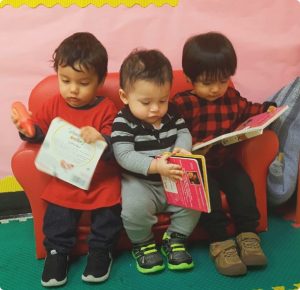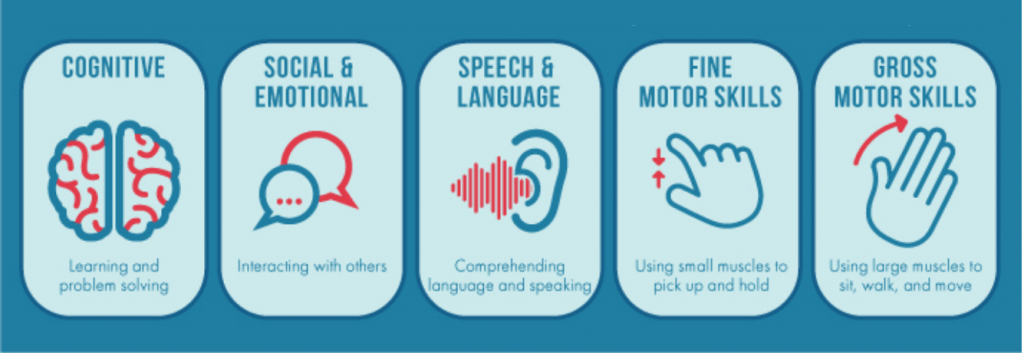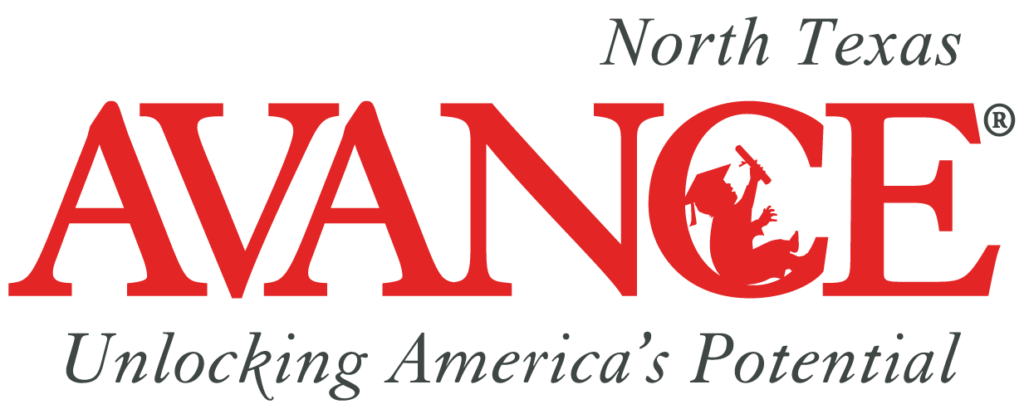PARENT-CHILD EDUCATION PROGRAM
Parents as All-Important First Teachers
 PCEP (Parent-Child Education Program) is AVANCE’s core foundational program teaching parents how to transform their homes into lifelong learning laboratories and to become their child’s first teachers, starting at birth.
PCEP (Parent-Child Education Program) is AVANCE’s core foundational program teaching parents how to transform their homes into lifelong learning laboratories and to become their child’s first teachers, starting at birth.
While parents attend the PCEP sessions, their children receive care and instruction using the PCEP Early Childhood Education Framework.
- Focused on school preparation
- 150 hours of instruction provided by early childhood teachers, following evidence-based curriculum.
- Builds the foundation children ages 0-4 need to prepare them to succeed in school.
- Classrooms are divided into babies, small children, and pre-school.
- Each group learns from age-appropriate lessons.
The framework, which can supplement other early childhood education curriculums, includes nine themes associated with developmentally appropriate activities that build on in-home instruction.
In addition to early education and parenting education, the program provides parents with opportunities to develop social capital – a network of support through connections within their cohort and within their community.
PCEP includes five main components:
The parent education component is delivered through a classroom-based structure where a trained AVANCE Parent Educator implements a lesson from AVANCE’s comprehensive, bilingual parenting curriculum. The purpose of the curriculum is to teach parents how to become their child’s first teacher and ensure the well-being of their children through mastery of various topics such as child development stages, health and safety, hygiene, needs of children, child and family nutrition, child abuse and neglect, substance abuse during pregnancy and the potential effects on the developing infant, positive discipline, and social and emotional needs. Delivering this curriculum in a group setting provides opportunities for parents to learn together and from one another.

The Early Childhood Education curriculum ensures children developing at or above their age group and are school ready. The curriculum teaches age appropriate lessons to ensure 0-35 months are developing communication, gross motor, fine motor, problem solving, and self-help skills. While the curriculum focuses on preparing children 36+ months to be school ready.
One of the most unique components of PCEP is the toy making curriculum. Facilitated by trained toy makers, parents are guided through a process whereby they create educational toys for their children from typical household materials. The purpose of toy making is to give parents tools to utilize to play with their children in an educational way, increasing serve and return, brain development, language acquisition, hand-eye coordination, visual discrimination, and auditory discrimination. To facilitate the process each toy is accompanied by a guide, called a Possibility Sheet, that gives parents options for how to utilize the toys. In addition to making the toys together, parents develop additional skills during the toy making sessions (i.e., sewing) and practice using the toys with each other, which increases confidence, communication skills, and connection.
Children don’t need more things. The best toys a child can have is a parent who gets down on the floor and plays with them.
Bruce Perry
During the community engagement and advocacy hour of PCEP, AVANCE provides parents with opportunities to develop a network of support between each other and within the community. Resource connection can take various forms, in some instances AVANCE staff provide information about the availability of community services and resources (including eligibility requirements), in other instances community speakers are invited to come share details about their support services, and in all instances parents share experiences and needs amongst each other, and receive support from each other and staff.
Trained AVANCE staff visit each family six times throughout the duration of the program. During the visit, AVANCE is able to observe parent-child interactions and provide individualized support based on those observations to reinforce the ideal parenting behaviors.
AVANCE’s PCEP has been implemented with thousands of the hardest-to-reach families and children for the past 46 years and has shown great impact on parents and children. Parents who participate in PCEP experience increases in knowledge of early child development and improves parenting skills. A study conducted by the Intercultural Development Research Association (IDRA) also found that PCEP alumni reported higher family income and rates of homeownership after graduating from the program.


 Spanish
Spanish